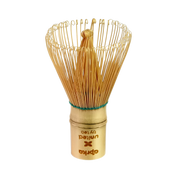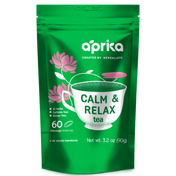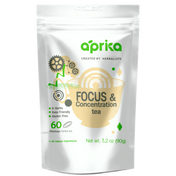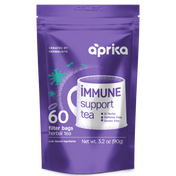We could not live without stress. But how much can we handle?
Stress is essential because it keeps us on the move. It gives you the energy to make a change, to stay alive, and make efforts to improve. But stress also has a counterpart you need to avoid. Persistent and severe stress turns against you and is not beneficial anymore. It can turn out to be your worst enemy if you don't take quick action.
But what can you do to avoid the bad type of stress? In this guide, you will understand the three main stages of stress and get clues to detect when it's probably getting out of control. If you're here for the solution, stay until the end, and you will end up with excellent recommendations to try at home.
Different types of stress
As mentioned earlier, there are many types of stress, and some can be pretty good. Stress can make you productive and active. But there's another side of the coin, and you have probably experienced when it starts creating a bad vibe. It's a feeling inside that sometimes reflects on the outside, and you should watch out because it can slowly turn into a harmful spiraling cycle. The first stage of this bad type of stress is anxiety, which can lead to chronic stress. The last stage is known as burnout syndrome:
-
Anxiety: When you're anxious, that is the first sign that stress is turning against you. It happens before an exam, during a job interview, or even on your first date. It can be as severe as to give you a skin rash, allergies, asthma, and even arthritis attacks. Even short minutes of extreme anxiety can cause immunity problems and make your body more susceptible to disease.
Your body detects stress as a danger alarm and tries to defend itself using two methods: using killer or relying on substances your body creates to fight disease (humoral immunity).
Short bouts of anxiety can make our cellular immunity collapse and sometimes even turn itself against our body. So, don't panic; try to deal with your nerves and always keep something close to calm yourself down. - Chronic Stress: If you feel anxious and stressed for a very long time, you can end up with chronic stress. This is phase two of the bad type of stress. In phase one, your cellular immunity collapsed, and now humoral immunity is also impaired. This means that we are even more susceptible to disease coming from bacteria or viruses. But physical problems are just the start because chronic stress can make you feel depressed and experience some harmful consequences like insomnia.
- Burnout Syndrome: Burnout syndrome is a cause of deep worry in our society. It is so pervasive and concerning that our scientists are trying to detect burnout with blood tests and the like. When chronic stress starts affecting you psychologically, that's the first sign of burnout syndrome. So, watch out because, in this stage, people feel deep emotional problems such as helplessness, no motivation at all, and no energy to make a change or do what they have to do. It is difficult to concentrate, and even performing easy tasks can be challenging. It's a horrible feeling, but you're not alone. Many people have felt this way, and there are plenty of tools for you to get you out of there.
Anxiety, chronic stress, and burnout syndrome can all cause sleep deprivation.
Uneasy feelings and thoughts can make you unable to fall asleep, even if you are exhausted. And it's even more stressful if you need to rest for the night and continue your work tomorrow. Instead of promoting sleep, stress makes it even harder, and so the cycle goes on. Plus, sleep deprivation can cause appetite problems. It increases your blood pressure, blood glucose, and your cortisol levels, the so-called "stress hormone."
So, before entering a never-ending cycle of stress and sleep deprivation, let's examine the facts and understand the dividing line between good stress and bad stress. That way, if you're starting to cross the line, you will know that you need to do something about it.
A wake-up call and what can you do about it
Is stress turning against you? How can you detect a good and bad type of stress?
If you feel that stress makes you feel alert, motivated, give you energy, and makes you feel more practical and creative, it is a good kind of stress. This type of stress takes the best out of you; it creates a positive change and bolsters you up to the top.
But be careful if this same situation starts making you feel anxious, sensitive to changes, nervous, and irritable. When you begin to feel that way, stress is turning against you, especially when it makes you feel angry for no particular reason, when it makes you feel sad, useless, and alone.
Do you feel cramps, headaches, or muscle pain? Is stress waking you up in the middle of the night or interfering with sleep? Those are alarming signs you need to watch out for; it's not normal, and it can escalate if you don't do something about it.
So, let's assume that stress is causing you problems. What now?
In most cases, you won't be able to eliminate or change the trigger. In that case, learning to cope is the best choice. There are many resilience techniques, for example:
- Be attentive to positive emotions and enjoy them to their maximum.
- Be social, keep around positive people.
- Don't forget to tell your loved ones how you feel, don't be lonely.
- Learn breathing techniques and mindful meditation to use them in stressful situations
- Don't be shy; ask for a massage. They are fantastic for relaxing and loosen up your tight muscles.
Homemade remedies to calm down
Have you tried to meditate when you're stressed out? When stress is very severe, trying to stay quiet and breathe can make you more anxious, and you can't concentrate on the exercise. Maybe what you need is an aid to calm down and relax. Nothing better than infusions and herbs to achieve a sensation of calm and inner harmony.
If you haven't tried these calming herbs, you should definitely give them a chance:
- Lemon balm leaves: Lemon balm has an impressive anxiolytic effect. In other words, it cuts out the anxiety. What it does is interacting with a receptor known as GABA-A. These are inhibitor receptors that combine with the inhibitor neurotransmitter GABA. By activating these receptors, your mind is put at ease, reducing the volume of your inner voices (1).
- Chamomile flowers: Chamomile is one of the most effective herbs for calm and relaxation. It also favors GABA, just like lemon balm leaves. Other researchers have even proposed that a substance in chamomile called apigenin binds to the same receptors as benzodiazepines. As such, it has a similar effect on nerves than Xanax or Valium but coming from natural sources (2).
- Peppermint leaves: The menthol scent of peppermint leaves is very calming, and studies show that it also has a potential role in relieving headaches. You can use this effect to your advantage and combine peppermint with anxiolytic herbs for a more profound calming effect (3).
- Hawthorn fruits: This herb works in the endogenous opioid system. It contains flavonoids that bind to receptors in the nervous system and activates signals that reduce pain and provide a sense of wellbeing. It can be used as an analgesic if a source of pain is causing stress and as a relaxing agent that prompts a sensation of calm and harmony (4).
- Fennel fruits: Depression is closely linked to anxiety disorders, and they can both improve with fennel fruits. They have anti-anxiety and anti-depressant properties, and studies show how effective they are in reducing post-menopausal women's symptoms. Everything seems to point out that fennel fruits work through GABA receptors, similar to lemon balm leaves (5).
- Rosehip fruits: Rosehip fruits release volatile organic compounds that stimulate different areas of the brain. They prompt the release of serotonin, a neurotransmitter with a relaxing effect. Rosehip also has many antioxidants and may improve depression when triggered by oxidative stress (6).
- Hibiscus petals: The research on hibiscus petals anxiolytic effect is underway, but it seems that this herb activates GABA receptors, and that is how it contributes to a sensation of wellbeing and calmness. Besides this positive effect, it appears to have a tremendous impact on memory and a strong antioxidant potential (7).
- Black elder flowers: You may also know this one as elderberry, and it is widely used as an anxiolytic herb in tea infusions. This herb increases dopamine levels, a feel-good neurotransmitter that contributes to our mood and the sensation of reward (8).
- Hops cones: They are traditionally used for depression, anxiety, and other mood disorders. Studies show that hops cones can change the metabolism of GABA and modulate neurotransmission in the brain. By causing inhibition in some brain regions, it relieves muscle tension, restlessness, and anxious thoughts (9).
- Lavender flowers: The active substance of lavender is known as silexan, and it has been studied extensively in a variety of applications. According to scientific data, it has anxiolytic effects, meaning that it cuts down anxiety and can be used as a sleeping aid. But an interesting effect is that it does not cause daytime sedating effects. So, if you use lavender during the day, you won't feel drowsy or sleepy, just relaxed and calm (10).
- Lime blossom: Citrus herbs such as lime blossom also have a calming effect through flavonoids that work in the central nervous system reducing anxiety. They work with GABA receptors, and many studies show that their effects are similar to those of benzodiazepines (11).
- Ginger root: Many of us have experienced the calming effects of ginger extracts before sleeping, and it has also been studied by many researchers. According to recent findings, ginger interacts with serotonin receptors. It does not trigger the release of serotonin but mimics the activity of this neurotransmitter. Thus, it has an interesting effect, not only to relieve anxiety but also depression and other mood problems (12).
The best calm and relax tea or herbal infusion should have at least three or four components listed above. But what if you join them all in the same infusion? Our "Calm and Relax" tea has done the job for you and uses all of these ingredients at the same time to wind down after a stressful day using different mechanisms from different herbs.
That way, stress won't beat you and turn itself into anxiety, chronic stress, or burnout syndrome. It is homemade, safe, and completely natural without any synthetic substances. That makes "Calm and Relax" tea one of the best over-the-counter aids to combat stress and anxiety.







